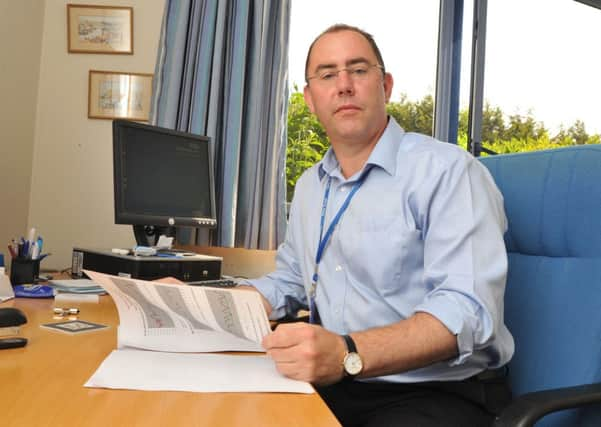Tackling ‘perception of bullying’ at Trust


The CQC inspectors said a number of employees came forward to raise serious concerns about the culture of the trust and the care being delivered.
It also noted a “disconnect” between staff and leadership in the trust.
Advertisement
Hide AdAdvertisement
Hide AdThe report said: “We saw a culture of concern and sometimes fear from staff in the trust about raising their concerns.”
The inspector said the trust must, “undertake a root and branch review across the organisation to address the perceptions of a bullying culture.”
Unison, which represents around 1,000 staff at the trust said it was “extremely concerned”, and branch secretary Jonathan Lee said, “We have been telling senior managers for some time now that our members have had enough, unfortunately our warnings have gone unheeded and now we face a collapsed service.”
Union GMB, said it had “no doubt the CQC report would finally highlight poor leadership”. Regional organiser Gary Palmer said: “The report makes clear that staff feel disengaged and undervalued and have had to work in a culture where they have been made to feel afraid to speak out or to share their concerns.”
Advertisement
Hide AdAdvertisement
Hide AdMrs Webster said: “I certainly do not notice anyone shying away from telling us how they are feeling.”
Mr Grayson said: “This is not new to the trust. I was told about this when I first came here some years ago. We have been doing a lot of work in the past few years to shift the perception.”
He said “staff taking ownership of their problems and resolving them themselves” was one course of action, and that the board would be doing more work to find out how staff feel and what their concerns are.
He said: “The staff survey is one way of measuring this but it is only one way. We are going to do some very focused work to get behind the survey and see how they really feel. When we have been through a period of very substantial change it is expected that staff will find that challenging and traumatic. That sometimes can be expressed in feeling bullied or excluded. We recognise it is an issue in some parts but not the whole of the organisation.”